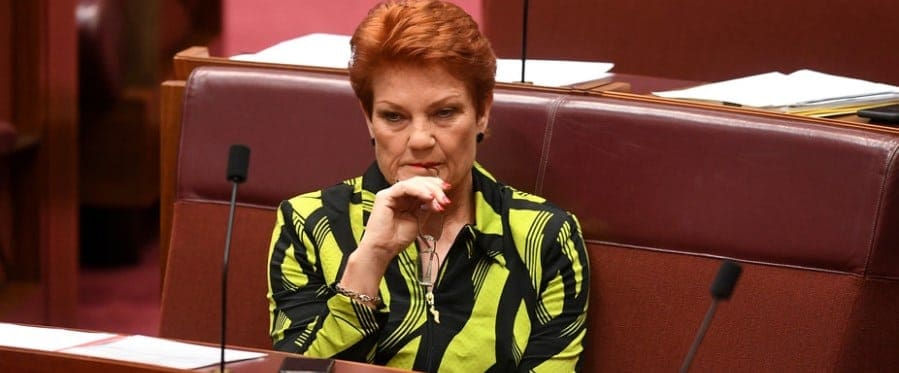This week, One Nation leader and senator Pauline Hanson suggested it would be better for teachers if students with autism and disability were put in special classrooms.
Hanson used children with autism as an example. She argued that their inclusion in regular classrooms was detrimental to non-disabled students, because “it is taking up the teacher’s time”.
She suggested moving students with disability “into a special class [to be] looked after and given that special attention … to give them those opportunities”.
Do Hanson’s claims stack up?
Hanson claimed that students with disability have a negative impact on their peers. Yet international research shows otherwise. Some research suggests students with disability have no impact on the learning of other students – whether they are present or not.
Other research shows that students appear to benefit from having disabled peers. They develop greater appreciation for human diversity and capacity for positive relationships.
Hanson also claimed that students with disabilities were better served in separate classrooms or schools. Evidence shows the converse is true. Decades of research has concluded that students with disabilities who learn in inclusive classrooms make far greater progress.
For example, students with disabilities in mainstream schools achieve higher grades than their counterparts in segregated schools and classes. They also develop more proficiency in language and mathematics and perform better on standardised tests.
Hanson claimed that students with disabilities take a disproportionate amount of teachers’ time, at the expense of non-disabled students. Yet studies exploring the views of teachers strongly indicate that they perceive inclusion as beneficial and valuable.
Teachers are more likely to feel anxious about their ability to meet their students’ needs and overwhelmingly express a desire for more information and training in order to become better teachers for all their students.
Interestingly, teachers often cite students with autism as a major group with whom they want to improve their skills. Our research shows there are many highly effective strategies that can be used in regular classrooms to achieve this.
In addition, teachers who receive appropriate professional learning about disability and inclusion report feeling more knowledgeable and less stressed.
This points to the importance of providing high-quality education and training for teachers. It also suggests the need for ongoing professional development in the teaching workforce.
Support for students with disability in class
Students with disability are not always well supported in Australian schools, but this does not mean that they are better off in special classes or that “special attention” will lead to opportunity.
In fact, too much individualised support and attention can increase disablement by fostering dependence, reducing the range of learning opportunities, and hampering achievement.
For this reason, it is critical that students with disability are included in the “real world” of school. This is important for them to become socially competent, independent and financially secure adults.
Preparing for life after school
Having desegregated classrooms is also an important step in paving a positive future after school. Inclusive education makes a powerful contribution to creating a more equitable and productive society. This prepares adults with disability for life after school and connects them in the wider community.
Students with disabilities who are educated in inclusive classrooms are far more likely to complete post-secondary education, making them much more capable of engaging in the workforce and obtaining meaningful employment.
Additionally, students with disabilities who attend their local schools are also more socially connected and engaged in their community as adults.
Hanson’s comments were based on anecdotes from conversations with a limited number of teachers. However, there is both established and new evidence that clearly indicates Hanson’s claims are unsubstantiated.
![]() Most importantly, when considering the placement of children with disability in the schooling debate, we should focus on both promoting quality education for all kids (regardless of their backgrounds), and providing the tools for a society in which all adults can work, study and interact socially.
Most importantly, when considering the placement of children with disability in the schooling debate, we should focus on both promoting quality education for all kids (regardless of their backgrounds), and providing the tools for a society in which all adults can work, study and interact socially.
By Linda J. Graham, Associate Professor in Education, Queensland University of Technology and Kate de Bruin, Researcher in Inclusive Education, Monash University
This article was originally published on The Conversation. Read the original article.
TOP IMAGE: Pauline Hanson has made claims about the negative impacts of having children with autism in mainstream classrooms. (Via original article/Lukas Coch/AAP)












